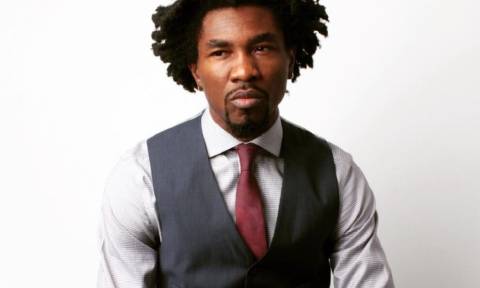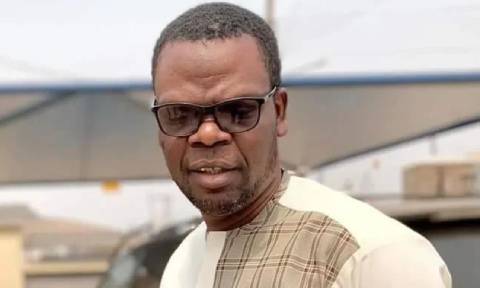INTELLECTUAL property lawyer and Chief Executive Officer of the only surviving Nigerian Pay TV, HiTV, Mr. Toyin Subair, recently took a critical look at the nation’s entertainment industry and declared it is time players on the turf begin to think along the line of building infrastructures instead of the short-term plan the industry currently runs on at the moment.
Subair named the reluctance of banks and other financial institutions in giving loans to practitioners as the reason for lack of infrastructures in the sector.
“In a country where the interest rates rove between 18 and 22 per cent, how many new businesses can start off on 180 days circle without the businesses dying midway because they are funded wrongly? When 80 per cent of the money needed to fund the business is debt and only 20 per cent is equity, you kill the business; it should be the other way round.
Today, many of us set up businesses because our uncles, our friends will put some money in it, since there is no institution that will invest in the business and give it a bit of equity. Looking at it strictly from the banks’ perspective, we go to them to use debt to fund what we should ordinarily use equity to do. So you put them in the driving seat. Thus, they are giving you debt at huge fees on short term, when the business really needs long- term equity. What do they do when they give you that money? They know that you are not going to last; they take the money from your account and they now leave you to begin working for them with huge debt and this kills businesses. And once you are paying the debt, the investment to grow the business you should use the money for, you will not be able to do that. You will not be able to enter a growth stage anymore; you enter a repayment stage, when you should invest in things that are growth in nature.”
He continued: “If we are in an industry where the only people you can attract are the artistes, who have no managerial, financial, legal and marketing expertise and you have to face a banking industry that is still ‘razor sharp,’ and you fall into the hands of those that give you money like money lenders (and for money lenders, it is short term), they want their money back and you cannot do anything with it. And you begin to reduce element of investment, which is the real productivity; instead you are using it to repay debt to do film or album.”
Eighty per cent of monies according to Subair should be directed into infrastructure and businesses that are based on infrastructure.
“The good thing about equity is that when you put in money, you can determine management as opposed to debt. With equity, you can say you must get a chief financial officer, chief marketing officer, and some other officers. Therefore, you are insisting on a level of management. So the money must be intelligently used for businesses to avoid people taking it to buy houses, cars or build houses.
The money should be for developing infrastructure in the different sectors of the entertainment industry. From those that do stage prop, lighting, everything to stage a film properly. You give them so that when they start doing shows, those shots will look cool and people want to watch and pay for it. You want to invest in companies that are really doing that and need that kind of infrastructure. Nigerian film industry today, if they release a film, we have just about 10 cinemas. In India, they have 2,500. If an India film comes out today, it is shown on cinemas, and piracy cannot disturb it. A film is supposed to go to cinema first before video, then television.
Ordinarily, Nigeria should have a minimum of 500 cinemas, proper, multiplexing cinemas, where you have two-case cinemas, restaurants and shops. We need that kind of infrastructure. Imagine the Mammoud Ali Balogun film or Dagrin film that just came out. I saw the amount of people that came out of the cinema hall. You can envisage if those films were showed in 100 cinemas over the weekend. Maybe 20 around Lagos, 10 in Port-Harcourt, five in Enugu, three in Ilorin, five in Ibadan and Oyo area, and people go out in these areas to watch these films. You should begin to calculate how much money would come back on the first week for Dagrin movie.”
The Nigeria movie industry has never had the opportunity to express itself through cinema because of lack of infrastructure, the HiTV boss submitted. “Cinema is for people to go out to have fun; it is not elitist. Let us trace it. What is the cinema culture? The cinema culture is going somewhere to watch film either with friends or family to have fun for the day. The number one thing is; do people go out to have fun in Nigeria? And if you are going to build cinemas, it is a different issue. Look at all the chicken companies that have come up in the last 10 years. Check, is it hunger that makes people go to Tantalizers or Tasty Fried Chicken?
To majority of the people, these places are entertainment destinations. People take their girlfriends there; people take their children there after church; that is why they strive. In some rural areas of the country, if you set up a Mr. Biggs, you will be amazed at the people that will patronise it. Okada (commercial motor bikes) riders will park their bikes outside, sit inside with their girlfriends to have fun. So, it is not true that we do not have the culture.
Cinema in Nigeria ran into problem during the indigenisation period in 1976. Before then, a lot of big towns were doing cinema. This was before the home video started. When home video started, which cinema was operating in Nigeria? Thus home video had no link with it. It was dead long before home video came in. It was no longer in existence. Indeed, cinemas before in Nigeria were not for Nigerian movies.
In fact, the Nigeria movie industry has never had the opportunity to express itself through cinema because of lack of infrastructure. What should we be spending money on? It is the building of cinemas, in making sure that the properties are well equipped, and you either produced it in digital format or 33mm; those are the things they need to look into and invest in critical institutions and companies, production companies, and things like that.
There must be strategic thinking. People go to watch football in viewing centres now; that is still cinema, it is the same culture. Today, many big viewing centres show films; it is just that when there is football, they show football. But every other time, they have films. So it is not that the culture is not there, but it is not organised.
So unless those things are put in place and done, the funding that comes from those movies is not going to happen. At present, those who are in charge of those movies are getting the money in small pieces, without a guarantee that they can get a full return back. But once you have cinemas, distribution companies, then things will start to take shape.
To be frank, what do you expect the producers to have done before now without infrastructure? Have you ever seen a detailed analysis of how many films are sold? And you know that we like giving figures; people like giving figures but attach numbers, reports and feedbacks of those figures, and you get zero. At the end of the day when they go to the bank, the banks that are going to loan them money are going to ask for a house. So, they are not lending money for business, they are just money lenders and they know that the business will not bring the money back and they know that they are going to sell the house; it is the standard.
But if somebody had thought about it properly, they would have known that except some things are in place that money will never come back, so they give them the money. The bank put in money without thinking through the whole system. The producers collected the money, but they also were not planning to do this thing for the next 30 years of their life, if not, they would have set up a plan.”
He faulted the idea of banks giving money to producers directly. “Who did they give it to, the producers who produced these films themselves? Should they be the ones taking the money and investing the money? Somebody who is an expert would have tied up how he is going to get that money back, not these people who have become jack of all trades and masters of none. They are producers, distributors, marketers; in fact, some of them even act in the movies and write the scripts. So in that situation, what do you expect to happen?
One of the things I do tell people is this: If HiTV stops selling in Nigeria totally, and we continue to create the channels we are creating, the next three years, we continue what we are doing outside Nigeria, the amount of money we would be making as a company would be huge because the business outside Nigeria is so huge for Nigeria music, films and productions. We are the first African channel that will be measured in the UK by an approved audience-rating agency, and as I am talking today, we have 280,000 homes that are watching HiTV alone and that same broadcast is being showed up in Russia. And we have not done the amount of things we should do. And by the time we add some live shows and all kinds of programmes from Nigeria, we would expand it and I am sure that by the time we are entering the beginning of next year, we would have 700,000 homes guaranteed that will be watching us in the UK and that is money based on advertising and in terms of content and use.
For instance, an AY (comedian) comes to us that he wants to do a show in the UK and we advertise it for him completely. The show is sold out, and on the day of the show, people buy tickets for 100 pounds, that is N25,000 to watch the show and there are more people outside than inside. He makes his own money, ticket man makes his own money, it brings more money for us and we do that for how many comedians and film artistes in the UK today. And if the channel was not there, marketing becomes more difficult; those shows are more difficult to see. The channel is more successful because it has more idea concept even from local brand, marketed and put together properly, it insists on quality of production, then that means more shows. The next time, we will not just be doing one show; by the time we are finished with all of these guys, when next they want to go to the UK, they want to do 18 shows and tours. And the amount of money they will be making now, it will not just be the small money from one show. So you can see the multiplier effect if we get it right locally.”
Subair’s dream of making Nigerian entertainment a global brand and the role of HiTV in all of it. “The number one thing is that we must stop being short-term minded, because nothing works like that. There is need for professionals to come in, then funding. If you notice what I said about equity and debt, with equity, you can dictate management. Do you know why I can say that? After five years of running my business, I found out that the biggest problem in Nigeria is not lack of money, it is lack of people who will do the work and do it well.
In any business, you must have people who are well trained and committed to that work. No matter the money they put in that business, the money will be short-lived without the right people and management and that is why I keep on talking about this management issue and attracting the right professionals so that the right money can come in. It must not be short-term. Short-term money and short-term people will kill everything and that is what we are having. It will not grow; you need long-term management individuals and long-term finances.
We also need regulations that will protect the industry. If you do not create regulation that will protect the industry, you have a local industry that you are exposing to damage, total damage. The World Trade Organisation Agreement allows every country to make laws to protect the growth of its own local media, entertainment and intellectual property industry.
The world recognises that you do not just allow foreigners to come into your country and destroy the creativity of your people. So where they say there is free trade market, there are exceptions to free market.
In South Africa, you cannot own a legal company as a foreigner and have more than 20 per cent. And we do not analyse these issues; why do we keep quiet about it in Nigeria?
“If not for what we have done, look at the amount of investment that had come into the industry because we (HiTV) came in and are doing what we are doing. There is need of investment and growth of this industry.
Now, what is our problem? Our problem is that, like I have said, there are three forms. If we address the problem of distribution, you set up cinemas, you have video and you have television. And television is into two: you have Pay TV, and there is free to air. In the Pay TV, we have created that window so Nigerian movies have a platform in Nigeria, Ghana, Kenya, South Africa, Europe and America and we are distributing on that platform. So in that segment of the market, we are already dealing with it.
But the cinema belt must the sorted out; the video belt and even the free to air must be sorted out. That is for movie. The real issue is for production, which we are starting with our new studio and the Tinapa Project. And what was the reason for our investment in Tinapa? We need to improve the quality of local production,” he submitted.



















